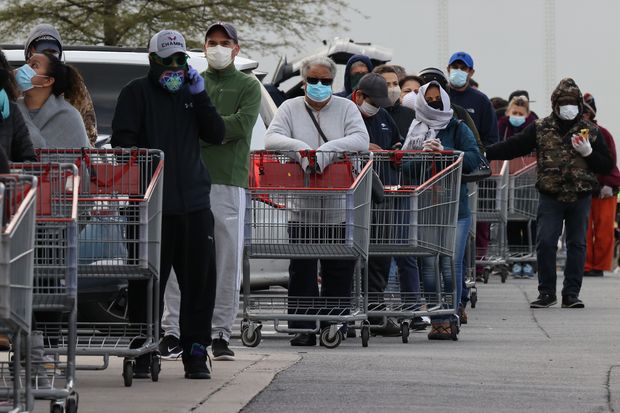LONDON, April 25, 2020 (BSS/AFP) – Boris Johnson’s government on Saturday
was embroiled in a political row after it emerged his chief advisor attended
meetings of the main scientific group advising ministers on the coronavirus
pandemic in Britain.
Downing Street was forced to deny that Dominic Cummings and another
advisor, Ben Warner, were members of the politically independent Scientific
Advisory Group for Emergencies (SAGE).
However, following reports in The Guardian newspaper, the government
admitted that Cummings had sat in on group meetings, prompting the opposition
Labour Party to ask for “answers” over his exact role.
The row emerged as the government’s general COVID-19 approach came under
increasing scrutiny and the official death toll approached 20,000 in one of
the countries worst hit by the pandemic.
In a statement, a Number 10 spokesman said: “It is not true that Mr
Cummings or Dr Warner are ‘on’ or members of SAGE.
“Mr Cummings and Dr Warner have attended some SAGE meetings and listen to
some meetings now they are all virtual.
“They do this in order to understand better the scientific debates
concerning this emergency and also to understand better the limits of how
science and data can help government decisions.”
The statement added that it was “factually wrong and damaging to sensible
public debate” to suggest the committee’s advice was affected by the
government.
– Concern over political influence –
Until now, membership of the committee, which is a key body in shaping the
UK’s response to the pandemic, has not been made public.
Labour’s health spokesman, John Ashworth told BBC radio on Saturday that
his “concern” was “that political advisers have influenced the debate.
“The way to clear this up is for all the minutes to be published; we’ve
called on the government to do this,” he said.
The UK government has come under increasing pressure on a number of fronts
in recent weeks, including criticism over shortages in personal protective
equipment and a lack of widespread testing, particularly of frontline health
and social care workers.
Questions have also been asked why it was slow in enforcing a nationwide
lockdown to enforce social distancing measures.
There are also growing demands for a government exit strategy from the
current lockdown, first imposed on March 23, extended on April 16 and due for
review on May 7, as concerns grow over the huge impact the crisis is having
on the economy.
Meanwhile, a new website to offer testing for up to 10 million key workers
and their families has been overwhelmed.
On Saturday, health officials announced that as many as 5,000 severely ill
coronavirus patients could be treated with plasma from people who have
recovered from the illness as part of a new approach.
Figures expected later on Saturday could push Britain’s official death
toll past 20,000.
The number of deaths for COVID-19 in hospital currently stands at 19,506.
In March, the UK’s chief scientific advisor, Sir Patrick Vallance, said
keeping the number of UK fatalities to less than 20,000 would be “a good
outcome”.



